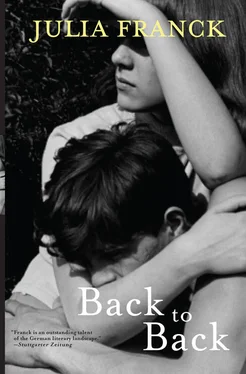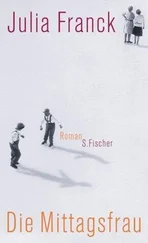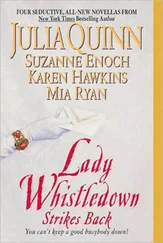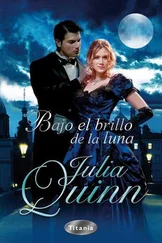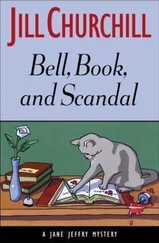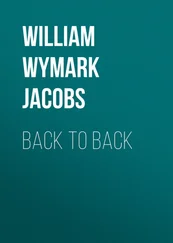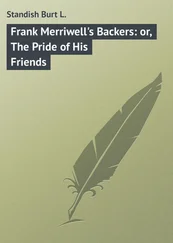Thomas screamed.
Don’t be silly. Ella nudged his back. Guess what, I was crying when I went upstairs to where Käthe and Eduard were comfortably lying in bed under the roof, and she told me, laughing, that it had been the fox!
The fox?
Yes, the fox. So then every evening I thought of the fox coming up our steps after dark, or jumping up from the meadow outside and polishing off our roast with his sharp teeth.
You really believed her? Thomas raised his eyebrows; he had to laugh.
Ella nodded, rapt in her thoughts. Or if not the roast, polishing me off, she whispered quietly. Only now did she seem to be thinking it over. Why ask?
Well, surely the fox didn’t sit at the table, gnaw the roast neatly off the bones and leave the bones lying there! Thomas was in a fit of giggles as if someone were tickling him.
Don’t laugh in that stupid way. Who else would it have been?
Who do you think?
Ella bit her lip. Not the fox? she wondered in a quiet voice. That was mean of them. They just ate it up on the sly, all by themselves. While we were in bed asleep.
We?
The fox was later, after you’d been born. So there. Her voice was brusque; perhaps her feelings were hurt by his doubts.
Come on, Ella, tell me more. Thomas was afraid he had annoyed Ella, and she wouldn’t want to go on with her story. Remember when Father arrived. Käthe had a big belly and I was going to be born.
Yes, but you weren’t there yet. I was sitting in the meadow by myself, catching beetles and putting them into my mouth. I called to him. I couldn’t stand up yet, maybe I couldn’t even walk.
There was snow still lying in the mountains in February when I was born.
It had already melted outside the house, so there.
And the moment the snow melted the meadow was right underneath it?
If you don’t believe me I’m not going on with the story.
Thomas listened hard, but Ella persisted in her silence. He leaned against her back, wanting to hear more. Go on.
No, I don’t feel like it any more.
Go on, please. And I won’t interrupt. Please.
Hard as Thomas might beg and plead, she stayed silent.
He thought of the other stories she usually told, of how she had nearly choked on the beetle scrabbling inside her mouth; it must have got into her windpipe. But then Papa had arrived, turned her upside down and shaken her. Ella knew just what their father smelled like. Sometimes she caught the smell of him in her nostrils, all of a sudden, unexpectedly, it could happen in the tram, the school playground, the kitchen. She knew he was there. Their father had asked Käthe to stop hitting little Ella with her wet nappy. She was only a child, he said, not a cat. She had only just started to walk. She’ll learn to sit on her potty, he said, like any other child. Ella didn’t remember the wet nappy. But she knew about it from a letter that she had taken out of Käthe’s chest of drawers in secret and shown to Thomas.
Who says he’s dead? Fallen at the front, maybe, but he isn’t dead.
There was something that scared Thomas in Ella’s voice; she shifted the intonation of words in a way that took the sense out of them. At the end of such sentences he tried to think backwards in his memory. She believed her story now, every detail of it. He didn’t know whether she was just pretending to him that she could change the world with nothing but her own ideas and assertions, or whether she believed it herself.
Gypsy children, they called us, do you remember? Stinking gypsy children and bastards. Ella laughed.
Thomas turned to her. She had let her hair fall over her face so that he couldn’t see her eyes. Ella-eyes, sparkling green gypsy eyes. It was a good thing the other children at school hadn’t sniffed out the Jewishness in them. A Christian name for the son, a birth announcement by a priest — the invention of a difficult birth, fever while Käthe was lying in, had helped. At school they had been the only children whose fathers were not farmers or war heroes. Whether dead or alive. And who had no capable farmer’s wife or housewife for a mother. The only children who bore their mother’s surname and had no father at all. Later, the priest had wanted to baptise the small children, but Käthe failed to keep appointment after appointment. She always had a new excuse. That probably told the priest that he was being used; two birth certificates within twelve months. Rumours began spreading. The other children’s fathers were beginning to come back that summer. Other fathers were dead or crippled somewhere abroad, or in prison.
I’d love to be a gypsy child, a real gypsy child, sighed Ella. Perhaps that’s what we are, too? One day a gypsy woman came by, begging — and as soon as she had gone Käthe heard babies crying. And then she found us in the meadow outside the house.
Do you think the twins like it in that children’s home?
Abandoned. In her hunger and her hour of need our gypsy mother simply abandoned us outside Käthe’s house.
Thomas moved away from Ella’s back, leaning on the trunk of the elm, and looked at her. We could just go and visit them?
Who? Ella did look up now, in curiosity.
The twins.
Why are you always going on about the twins? Käthe has to work. She’ll be busy at the quarry again by the end of the month. Ella raised her eyebrows and pursed her lips. Nobody here needs the twins. Eduard’s gone. We can’t help them.
You imagine being a gypsy child. Abandoned. It’s a fact that the little twins have been in the home for weeks. Baffled, Thomas shook his head. If in doubt, you’re sorrier for yourself than anyone else.
Ella thrust out her lips, offended, and looked at the house. The corners of her mouth twitched, and she wrinkled up her nose, which made Thomas want to laugh. However, she took a deep breath as if to dive underwater and stay there for a long time. Ella’s face distorted painfully, her eyes rolled so that Thomas could hardly see their irises, she groaned from the depths of her throat with an almost animal sound.
What is it, Ella? Thomas put one hand on her shoulder. What’s the matter with you?
Oh! Ella shook her head frantically and abruptly hunched her shoulders forward; she writhed, her head struck the cracked planks of the tree-house floor, and hissing, wrenching sounds poured out of her mouth.
Come on, tell me what’s wrong. Can you hear me, Ella?
Now he saw her tears; she was sobbing, she had red marks on her face, she was weeping uncontrollably.
Aaarrr! He knew that growl of hers; it was the growl of a dangerous beast of prey. But was she playing a game, and if so, what game was it?
I can’t bear it! I think I’m dying, Thomas, hold me tight. Gasping, she clung to his arm with all her might, she was sinking her teeth into his forearm. Ella could turn into an animal from one moment to the next, become another being. When Ella let go of him, she didn’t even notice the blood on his skin from the bite-mark, she dug her nails into his arms, let go and tore her own hair, hammered the floor in front of her with her fists. This is hell, it’s hell!
Thomas knelt down in front of her and tried to hold her head, her fists, but she struck his hands away and punched his collarbone.
Let go of me, Ella shouted at him. He saw a soft tuft of hair in her hand; she had obviously pulled it out of her head — or his. He felt a burning sensation on his scalp.
He was talking to her as if she were a horse now: calm down, lie still, lie still. But Ella took no notice; she drummed her fists, she groaned, she screamed. Then all of a sudden she stopped; Ella looked around her, glassy-eyed, quiet now, she sniffed and shook herself. Thomas waited.
All right now?
She bowed her head; softly, almost reproachfully she said: Nothing’s all right. What’s pain good for anyway? It’s all so pointless!
Читать дальше
